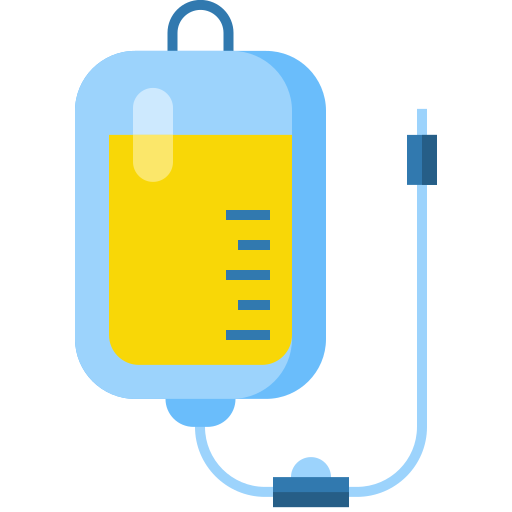
Epirubicin Hydrochloride
2 mg/ml
Eskayef Pharmaceuticals Ltd.
Product Details
Description
It is contraindicated in patients with known hypersensitivity to Epirubicin or other anthracyclines or anthracenediones or any other components of this product.
Most commonly reported adverse effects are- Myelosuppression, cardiotoxicity, alopecia, hyperpyrexia, lethargy, amenorrhoea, nausea, vomiting, diarrhea, fever, rash, anorexia, harmless reddish appearance of urine for 1-2days.
Pregnancy Category D. There are no adequate and well-controlled studies in pregnant women. It should be used in pregnancy only if the potential benefit justifies the potential risk to the fetus. It is not known whether this drug is excreted in human milk. Because of the potential for serious adverse reactions from Epirubicin in nursing infants, a decision should be made whether to discontinue nursing or to discontinue the drug, taking into account the importance of the drug to the mother.
Storage of the solution for injection at refrigerated conditions can result in the formation of a gelled product. This gelled product will return to a slightly viscous to mobile solution after 2 to a maximum of 4 hours of equilibration at controlled room temperature (15°-25°C). Inspect parenteral drug products visually for particulate matter and discoloration prior to administration, whenever solution and container permit. Procedures for proper handling and disposal of anticancer drugs should be used when handling and preparing Epirubicin. Epirubicin Injection should be administered only under the supervision of qualified physicians experienced in the use of cytotoxic therapy. Before beginning treatment with Epirubicin, patients should be recovered from acute toxicities (such as stomatitis, neutropenia, thrombocytopenia, and generalized infections) of prior cytotoxic treatment. Also, initial treatment with Epirubicin should be preceded by a careful baseline assessment of blood counts; serum levels of total bilirubin, AST, and creatinine; and cardiac function as measured by left ventricular ejection function (LVEF). Patients should be monitored carefully during treatment for possible clinical complications due to myelosuppression. Supportive care may be necessary for the treatment of severe neutropenia and severe infectious complications. Monitoring for potential cardiotoxicity is also important, especially with greater cumulative exposure to Epirubicin.
Epirubicin dosage adjustments for hematologic and non-hematologic toxicities within a cycle of treatment, is based on nadir platelet counts <50,000/mm³, absolute neutrophil counts (ANC) <250/mm³, neutropenic fever, or Grades 3/4 nonhematologic toxicity. Epirubicin Day 1 dose should be reduced in subsequent cycles to 75% of the Day 1 dose given in the current cycle. Day 1 chemotherapy should be delayed in subsequent courses of treatment until platelet counts are ≥100,000/mm³, ANC ≥ 1500/mm³, and nonhematologic toxicities have recovered to ≤ Grade 1. Bone Marrow Dysfunction: Administering a lower starting dose (75-90 mg/m²) should be considered for heavily pretreated patients, patients with pre-existing bone marrow depression, or in the presence of neoplastic bone marrow infiltration. For patients receiving a divided dose of Epirubicin (day 1 and day 8), the day 8 dose should be 75% of day 1 if platelet counts are 75,000 100,000/mm³ and ANC is 1000 to 1499/mm³. If day 8 platelet counts are < 75,000/mm³, ANC < 1000/mm³, or Grades 3/4 nonhematologic toxicity has occurred, the day 8 dose should be omitted. Hepatic Impairment: Recommendations regarding use of Epirubicin in patients with hepatic impairment are not available because patients with hepatic abnormalities were not included in the adjuvant trials. In patients with elevated serum AST or serum total bilirubin concentrations, the following dose reductions are recommended: Bilirubin 1.2 to 3 mg/dL or AST 2 to 4 times upper limit of normal ½ of the recommended starting dose. Bilirubin >3 mg/dL or AST >4 times the upper limit of normal 1/4 of the recommended starting dose. Renal Impairment: While no specific dose recommendation can be made based on the limited available data in patients with renal impairment, lower doses should be considered in patients with severe renal impairment (serum creatinine > 5 mg/dL). Pediatric Use: The safety and effectiveness of Epirubicin have not been established in pediatric patients. Pediatric patients may be at greater risk for anthracycline-induced acute manifestations of cardiotoxicity and for chronic CHF. The pharmacokinetics of Epirubicin in pediatric patients have not been evaluated. Geriatric Use: Although a lower starting dose of Epirubicin was not used in trials in elderly female patients, particular care should be taken in monitoring toxicity when Epirubicin is administered to female patients ≥70 years of age.
If an overdose occurs, supportive treatment should be provided (including antibiotic therapy, blood and platelet transfusions, colony-stimulating factors, and intensive care as needed) until the recovery of toxicities. Delayed CHF has been observed months after anthracycline administration. Patients should be observed carefully over time for signs of CHF and provided with appropriate supportive therapy.
Cytotoxic Chemotherapy
-
Support 24/7
Call us anytime -
100% Safety
Only secure payments